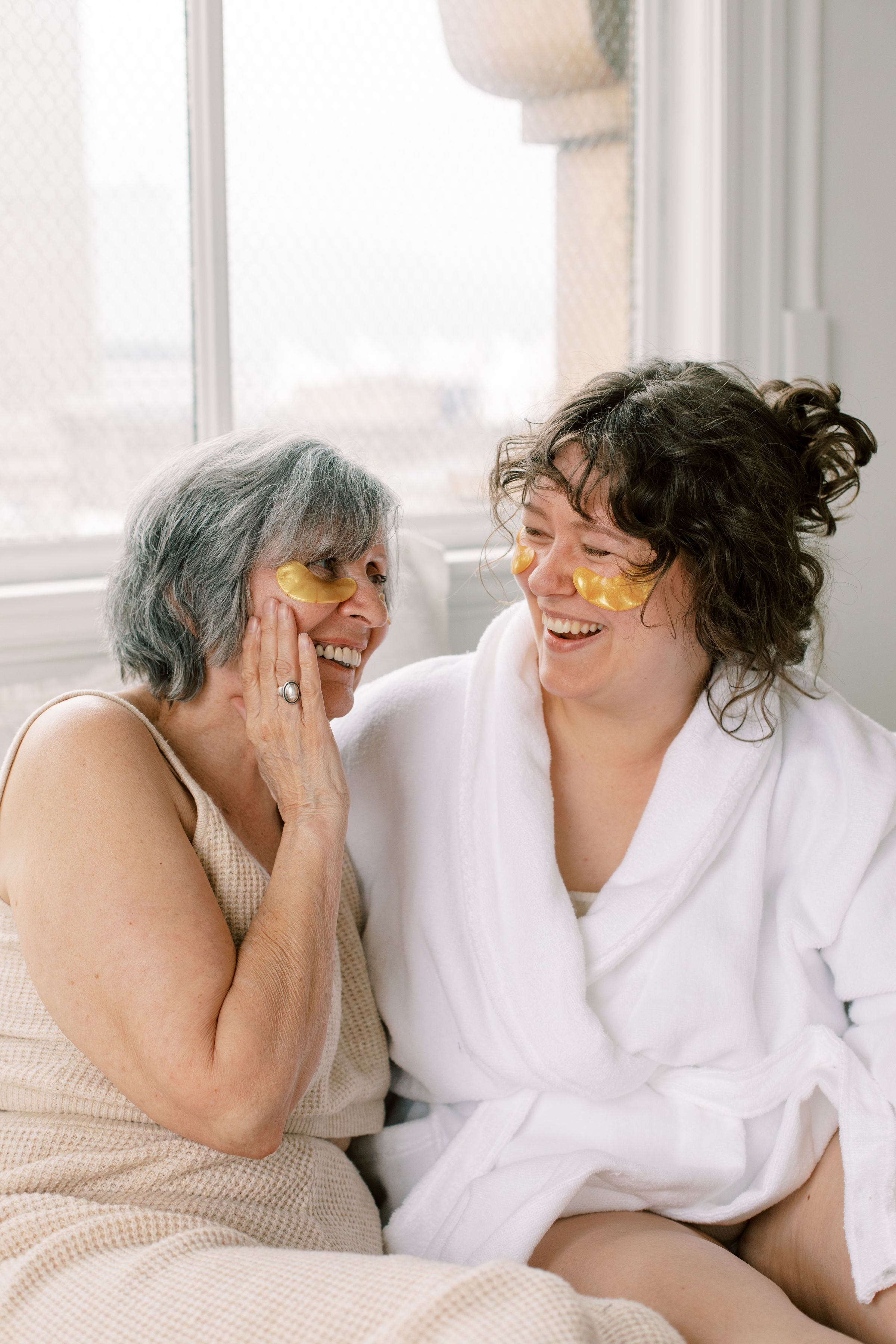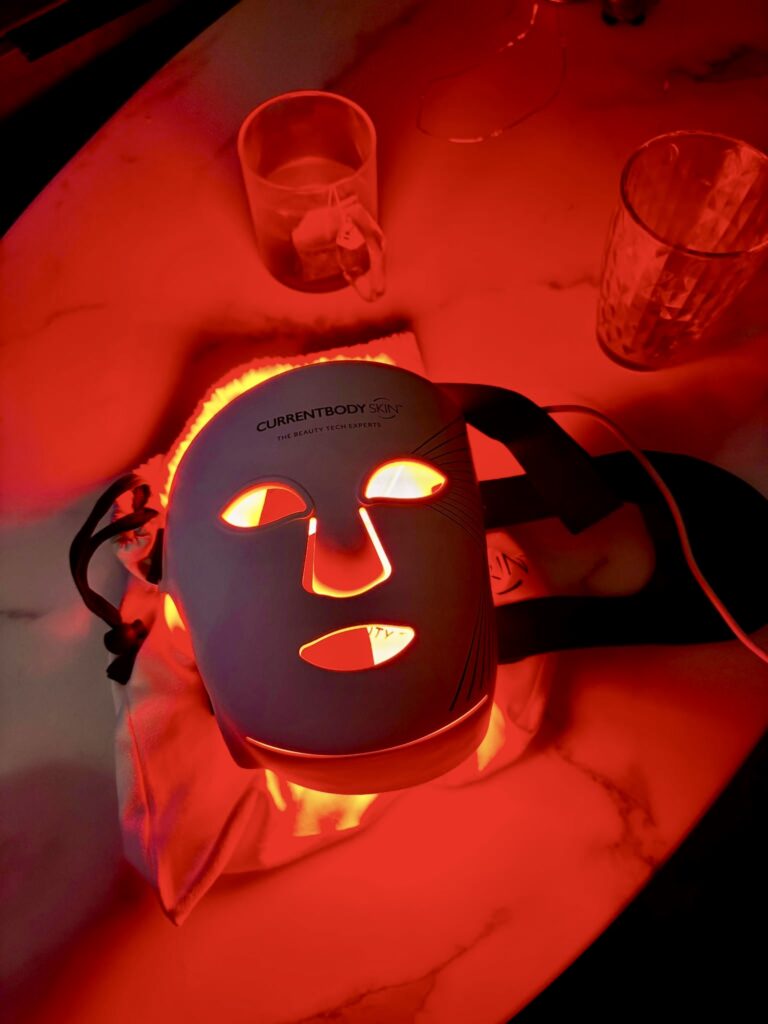The Skin Types That Age Faster & How to Keep Yours Looking Young

Aging is inevitable, but how your skin ages? That depends on a mix of genetics, lifestyle, and, yes, your skin type. If you’ve ever wondered whether dry, oily, or combination skin is more prone to wrinkles, sagging, or pigmentation, you’re in the right place.
Does Skin Type Affect How Fast You Age?
Yes, dry skin tends to age the fastest due to its lack of natural oils and moisture. Without enough hydration, the skin barrier weakens, leading to fine lines, wrinkles, and dullness earlier than other skin types.
BUT – the good news is that women with dry skin tend to invest in more hydrating skincare and use it often, preventing wrinkles and creating a more youthful glow as they age.
Oily skin isn’t immune to aging – while it may develop wrinkles more slowly, it is more prone to sagging and enlarged pores over time due to collagen breakdown. And as their skin dries with age, they haven’t gotten into the habit of using hydrating products that can effectively prevent wrinkles.
Sensitive skin can also show signs of premature aging because of inflammation and a weakened skin barrier, while combination skin experiences a mix of different aging concerns.
No matter your skin type, the biggest contributors to premature aging are UV exposure, dehydration, and collagen loss, which means the right skincare and lifestyle choices can make all the difference.
Which Skin Type Ages the Fastest?
Dry Skin: Prone to Wrinkles & Fine Lines
How It Ages:
If you have dry skin, you probably already know the struggle: tightness, flakiness, and a lack of glow. Unfortunately, dry skin is the most prone to premature fine lines and wrinkles because it lacks natural oils that help keep it plump and hydrated. Learn why skin starts getting drier in your 30s here.
Without enough moisture, skin loses elasticity faster, leading to visible wrinkles, crepey texture, and dullness. Plus, a weak skin barrier makes dry skin more vulnerable to damage from the environment, including UV rays and pollution.
How to Slow Aging for Dry Skin:
- Use a hydrating cleanser instead of harsh foaming washes.
- Apply hyaluronic acid and ceramides daily to lock in moisture.
- Never skip moisturizer – opt for richer creams with ingredients like squalane or peptides.
- Sunscreen is non-negotiable – UV damage is one of the biggest causes of premature aging.
Oily Skin: Slower Wrinkle Formation but Prone to Sagging
How It Ages:
Oily skin has a natural advantage when it comes to aging—the extra sebum helps keep skin plump and hydrated, which means wrinkles take longer to form.
However, that doesn’t mean oily skin is immune to aging. Instead of fine lines, oily skin tends to experience sagging and enlarged pores over time. Excess oil production can break down collagen faster, leading to a loss of firmness, especially around the jawline and cheeks.
How to Slow Aging for Oily Skin:
- Use lightweight, oil-balancing skincare to prevent clogged pores.
- Strengthen collagen with vitamin C and retinoids to maintain elasticity.
- Hydrate with oil-free or gel-based moisturizers (yes, even oily skin needs moisture!).
- Focus on sun protection – doesn’t protect against UV damage, which accelerates skin aging.
Combination Skin: A Mix of Aging Signs
How It Ages:
Combination skin can be tricky – it ages both like dry and oily skin depending on the area. Fine lines may appear on drier parts (cheeks, under-eyes), while oilier areas (forehead, nose) may experience sagging and larger pores.
Because this skin type has a mix of concerns, it requires a more targeted approach to aging prevention.
How to Slow Aging for Combination Skin:
- Treat dry areas with richer hydration and oilier areas with lighter products.
- Use exfoliants like AHAs (glycolic acid) or BHAs (salicylic acid) to keep skin balanced.
- Focus on collagen-boosting skincare (retinoids, peptides) to prevent sagging and wrinkles.
- Always use broad-spectrum SPF, since combination skin can be prone to sun damage and uneven skin tone.
Sensitive Skin: Prone to Inflammation & Premature Aging
How It Ages:
Sensitive skin tends to be more reactive to external stressors, including pollution, UV exposure, and harsh skincare ingredients. This ongoing inflammation can accelerate collagen breakdown, leading to premature wrinkles, redness, and uneven skin tone.
The biggest challenge with sensitive skin is maintaining a strong skin barrier to prevent moisture loss and irritation, both of which can speed up aging.
How to Slow Aging for Sensitive Skin:
- Stick to gentle, fragrance-free skincare to avoid irritation.
- Use barrier-strengthening ingredients like niacinamide, ceramides, and centella asiatica.
- Be cautious with retinoids and exfoliants – introduce them slowly to avoid irritation.
- Sun protection is even more important – UV exposure can worsen inflammation and aging signs.

So, Which Skin Type Ages the Fastest?
As mentioned previously, dry skin tends to age faster, but every skin type has different aging challenges. However:
- Dry skin tends to develop fine lines and wrinkles earlier due to a lack of moisture.
- Oily skin is less prone to wrinkles but may experience sagging and enlarged pores over time.
- Combination skin shows mixed aging signs depending on oil distribution.
- Sensitive skin may experience accelerated aging due to inflammation and irritation.
No matter your skin type, the best way to prevent premature aging is through hydration, sun protection, and collagen support.
How to Keep Skin Youthful – No Matter Your Skin Type
Regardless of whether you have dry, oily, combination, or sensitive skin, a solid skincare routine and healthy lifestyle can dramatically slow the aging process.
1. SPF Is Your Best Anti-Aging Product
Sun damage is the #1 cause of premature aging—wrinkles, fine lines, pigmentation, and sagging all accelerate without protection. Use broad-spectrum SPF 30-50 every single day (yes, even when it’s cloudy).
2. Hydration & Barrier Repair Matter
Dehydrated skin ages faster regardless of skin type. Using hyaluronic acid, ceramides, and fatty acids helps maintain moisture and protect the skin barrier.
3. Collagen Support Is Key
Collagen loss begins in your mid-20s, which is why adding retinoids, peptides, and vitamin C to your routine helps keep skin firm and youthful.
4. Lifestyle Impacts Aging More Than You Think
- High sugar diets speed up collagen breakdown.
- Smoking and alcohol accelerate aging.
- Quality sleep and stress management keep your skin looking fresh and youthful.
Understanding Your Skin Type = Smarter Aging Prevention
Instead of asking, “Which skin type ages the fastest?”, a better question is: “What does my skin need to age well?”
No matter your skin type, hydration, SPF, and collagen support are the three biggest game-changers when it comes to keeping your skin youthful.
Aging is inevitable – but how your skin ages is in your hands.



